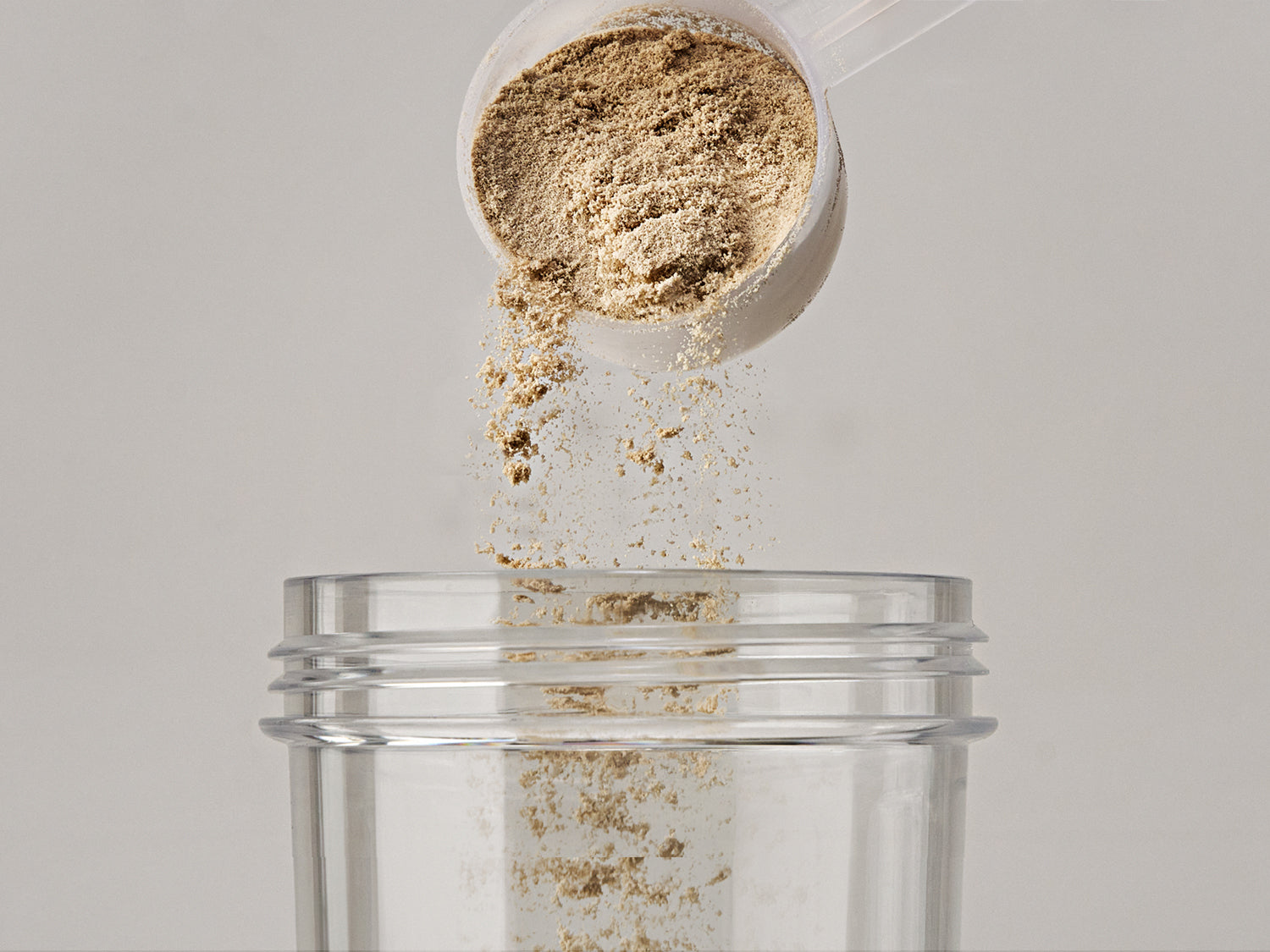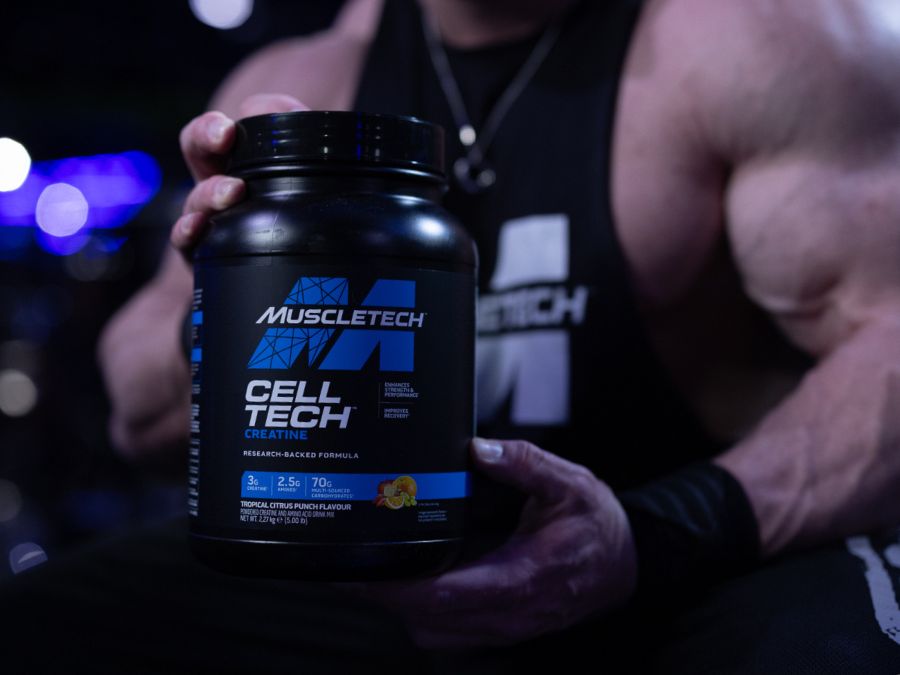Hydration Matters: Water intake with Creatine supplementation, what is the right quantity?
Creatine is one of the most famous supplements in the market and unlike many others is well researched. However, as users embark on their creatine journey, one of the important questions that comes to mind is how much water one should drink while taking creatine? Let’s delve into the intricacies of hydration, exploring the relationship between water consumption and creatine supplementation.
Table of content
Creatine 101: Understanding the basics
To be able to understand the hydration aspect of creatine, we need to understand the foundational basics of creatine, this popular supplement. Let’s try to remember some biology classes from school:
Creatine is a nitrogenous organic acid that is essential for supplying energy to muscle cells throughout the body. There are multiple forms of creatine supplements with creatine monohydrate being the most popular and scientifically studied.
One percent of the total volume of human blood is creatine, while 95 percent of creatine in the body can be found in skeletal muscle. Creatine can be found in small amounts in various foods, such as milk, fish, meat, and it's also synthesized by the body.
The primary role of creatine is to support the rapid production of energy during short and intense bursts of physical activity. Creatine is widely used to enhance athletic performance by increasing internal phosphate stores.
Creatine Benefits
1. Enhances Athletic Performance
Taking creatine supplements enhances physical performance in soccer, jumping and rowing. Creatine not only helps the athletes with better stamina for long intensive periods but also helps non- athletes boost the body’s creatine pool to enhance simple physical performance.
Creatine has the potential to improve performance involving extreme and intense activity in short period, particularly during repeated bursts as seen in lifting weights and sprinting. On top of that creatine could boost the effects of resistance training, on body mass and strength. Creatine will prove to be more effective if taken at the right time.
2. Energizes Muscle Cells
Adenosine triphosphate (ATP), also known as “energy currency” of cells is the main source of energy during high intense exercise. When your cells use ATP for energy it loses a high-energy phosphate and changes into Adenosine diphosphate (ADP).
In this dynamic process, creatine increases the overall pool of phosphocreatine for recycling ADP to ATP. Creatine supplementation results in more energy available for high intensity exercise in turn enhancing strength and power output. So, Should You Take Creatine on Rest Days?
3. Helps Weight Gain
Taking creatine can make you gain weight by water retention. Your muscles hold on to water making you feel bloated or puffed typically around your arms, legs, and stomach. You can gain about two to five pounds due to retention of water.
However, although creatine can cause some water weight gain, research has found that creatine can effectively supplement for endurance and strength, and consequently, your body may increase in muscle strength and size.
4. Enhances Cognitic Ability
While creatine’s influence on muscles is widely recognized, it has gaining prominence on impacting brain health and cognitive function. For the relentless energy demand of the brain, creatine acts as a supplier of quick and efficient energy for cognitive tasks.
Studies suggest that creatine supplementation might enhance working memory, information processing speed, and overall cognitive performance, especially under conditions that impair cognition, such as a bad nights sleep, making it a potential ally for anyone looking to boost mental acuity.
Also Read: What Foods Contain Creatine?
Creatine and hydration; what’s the connection?
About 71 % of earth is made up of water, human body is mostly made up of water as well (Hopefully you remember the biology class in school). Water is the cornerstone of well- being, influencing not only most of the life processes but also the feelings and emotions.
Role of water goes way beyond just keeping people alive. Water helps in all the physiological processes including digestion, circulation, temperature regulation, transportation of nutrients and waste products.
When working out, body loses a lot of water through sweat and expiration. This is called dehydration and can be dangerous if not taken care of. Coordination and cognitive functions can be directly impacted by dehydration.
To overcome dehydration, some people up their fluid intake way too much to match the additional requirement during creatine intake. Sometimes it can cause overhydration, leading to nausea, headache and sometimes seizures.
Balancing the act
Creatine and water go hand in hand, and it is important to understand the relationship before you start creatine supplementation. There’s a delicate balance between taking in too much water and not taking enough of it. Both will have (negative) consequences, and neither will have benefits.
Generally, natural diets (red meat, fish, milk) contain limited quantities of creatine. People who plan to include creatine supplements often do it to effectively saturate muscles and enhance athletic performance.
As mentioned earlier, creatine can enhance muscle cell volume by drawing water directly into the cells also called a volumization. This makes muscles bigger and stronger “temporarily”. However, as seen in severe dehydration, if you don’t drink enough water the body temperature will rise, the blood flow to the muscles will decrease, the heart rate will go up and eventually, there will be a decline in overall performance and strength.
Creatine loading
The most effective creatine loading is to take about 5g four times a day (a total of 20g per day into 4 even dosages) for 5- 7 days and then 3-5g a day for maintenance. This has shown to help saturate muscles quickly and provide rapid energy source for short bursts of activity.
There are studies on mixing creatine with preworkout that can give you a complete picture on how to use it.
So, is there a magic amount of water to drink?
The relationship between hydration and exercise is dynamic. The reason why you may want to consider drinking slightly more water when taking creatine is that it pulls water into the muscle cell. As a result, there’s less water available for other physiological functions.
Intense physical activity increases your body’s requirements for water, and it becomes very relevant when incorporating creatine into your routine. One must be mindful of fluid needs, being able to adjust the intake based on the intensity and duration of workouts.
While there is general information regarding the daily fluid intake, spreading your water consumption evenly throughout the day is generally advised.
Individual responses to creatine and water requirements vary form individual to individual. Paying attention to body signals is important, including your thirst and colour of your pee. Dark colour urine is never a good sign, and you might want to increase water intake to change it to light-coloured pee.

Some studies have reported that on an average about 0.5- 1.0 L fluid retention was observed during creatine loading proportional to the weight gain. The daily water requirement increases by no more than 50 -100 mL over the course of creatine loading (10 to 14 days).
Of course, if you are a very big muscle athlete with significant muscle mass, the figure will be slightly more due to more retention by big muscles. However, keep the monitoring your body signals and act accordingly to make sure you are adequately hydrated (Check your pee colour).
While the urine color test provides relevant information about a person's water levels, it should be noted that the color of urine could be darker or lighter due to other factor including diet, medication, medical condition, infection, concentrated urine, overhydration, usage of diuretics, excessive caffeine, or alcohol consumption.
In general, it's crucial to keep your body well-hydrated when using creatine, regardless of the phase you're in. A daily water intake of 2-3 liters (approximately 8-12 cups) is considered the norm for most individuals. This amount provides sufficient hydration to support creatine's potential benefits. In addition to drinking 2-3 liters of water, you will consume an extra 8 oz of water with each creatine dose.
Myths surrounding Creatine supplementation
Even though Creatine is one of the most widely researched supplements in sports nutrition, there are still a lot of misconceptions about it. So, let’s debunk some of the most common myths about this popular supplement. For those looking for a deeper scientific deep dive on some common creatine misconceptions, please check this open access paper (See: https://jissn.biomedcentral.com/articles/10.1186/s12970-021-00412-w). In the meantime, we’ve summarized some of the key take aways below.
Myth #1: Creatine is Like an Anabolic Steroid
Creatine is a compound derived from amino acids. It’s found naturally in your body and in foods (like meat and fish). You store about 95% of your body’s creatine in your muscles. The remaining 5% is in your brain, liver, and kidneys. The chemical structure of creatine has no resemblance to a steroid molecule. There is a huge difference between anabolic steroids which are drugs and creatine which is a supplement.
Myth #2: Creatine Causes You to Retain Excess Water:
Many bodybuilders stop taking creatine before competitions as they believe creatine supplementation causes the body to hold extra water making them look “soft”. However, it is more likely that the soft look is caused by subcutaneous (under the skin) water caused by low quality products that may be giving excess sodium.
Myth #3: Creatine Causes Cramping and Dehydration
Creatine retains a certain amount of water in the muscles. Although daily water requirements increase slightly this is unlikely to lead to dehydration and cramps in most cases. For safe and effective workouts, you should make sure you stay hydrated, but there is no need to take in excessive amounts of water.
Myth #4: Creatine Will Upset Your Stomach
While excessive doses of any supplement can result in digestive issues, recommended doses of creatine rarely cause stomach upset. The recommended dose is 3-5 grams per day is ideal. Even if you’re loading with 20 grams daily, it is advised to split it into four doses of five grams over the course of the day.
Myth #5: Creatine is Bad for the Kidneys
Creatine can slightly raise levels of creatinine in your blood. Creatinine is a waste product created by your muscles. Healthy kidneys filter creatinine, taking it from your blood and delivering it for excretion through urine. Doctors measure creatinine levels to get an idea of how well your kidneys are functioning.
But a high creatinine level serves as an indicator of a potential health problem and is not necessarily a problem itself. So, while creatine supplementation may bump up your creatinine levels, that does not mean it is causing harm to your kidneys. Healthy kidneys can handle this extra amount of creatine.
Studies have shown that neither short-term, medium-term, nor long-term creatine supplements result in adverse effects on kidney function. There is little concern that creatine will damage your kidneys unless you have a pre-existing kidney condition.
Also, creatine is not just good for men, creatine is good for women too. You have to choose a good creatine supplement for women and see them make progress.
How Much Water to Drink, Finally?
When it comes to creatine water intake, we’ve covered all there is to cover! You now know what creatine is, how it works and what it can do for you. You can even educate some misinformed folks that think creatine is a drug that will ruin your body and inflate you like a balloon. You can also guide people who are trying to include creatine in their regimen to maximize its advantages and reduce side effects.




